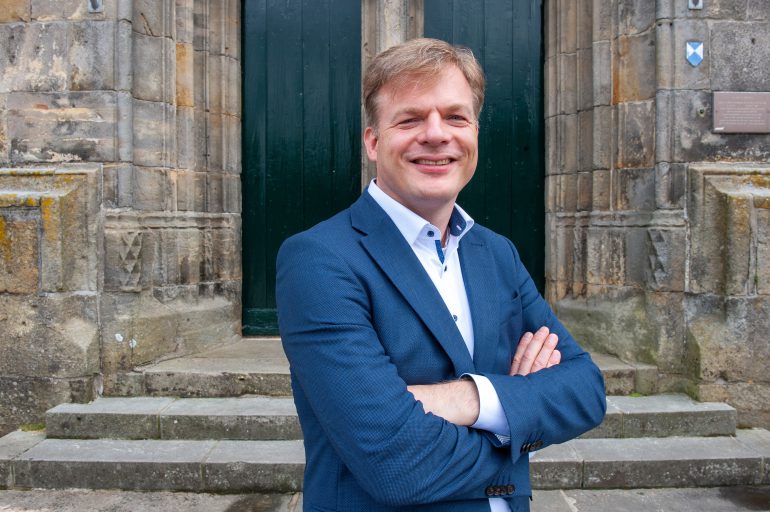Much has been going on in The Hague after the fall of the cabinet. Not only is a snap national election slated for 22 November – well ahead of the regular schedule – but over 35 members of the Dutch parliament have decided to step down from politics. The new BBB political party has chosen its candidate for the prime minister position and the wildly popular Pieter Omzigt has created his own political party (New Social Contract, NSC). Let’s break down the latest shake-up going on in The Hague now.
BBB selects Prime Minister candidate
Farmers’ party BBB has nominated former CDA member Mona Keijzer as its prime ministerial candidate. Caroline van der Plas, the party leader, opted out of the prime minister role, choosing to lead from within the Dutch Parliament. Keijzer, who previously ran for CDA leadership twice, has experience as Secretary for Economic Affairs. She joined the BBB driven by their neighbourly focus and commitment to practical solutions, reigniting her political ambitions.
Trouble in the Party for the Animals (PvdD)
The board of the Party for the Animals has resigned after initially rejecting party leader Esther Ouwehand as their lead candidate for the upcoming parliamentary elections due to ‘integrity violations’. However, following public outcry and widespread support from party members, the board reversed its decision and reinstated Ouwehand as leader. Still, the board maintained its belief that Ouwehand is unsuitable for the role, independent of the integrity reports. This led to the resignation of all board members, leaving an interim board for now. Ouwehand expressed gratitude for the support and will continue to lead the party into the elections in November.
Frans Timmerman leads the new GL/PvdA combined party
This marks the first time the PvdA and GroenLinks are jointly participating in national elections, after previously cooperating in the Senate. Frans Timmermans has been officially confirmed as the leader of the PvdA/GL alliance, winning 91.8% of the votes, with almost 38,000 participants, representing 51.5% of eligible voters from both parties. This decision was largely a formality since Timmermans was the sole candidate, although an option to vote for none of the candidates was available. Timmermans, 62, was the European Commissioner for Climate Action – a position that Minister of Foreign Affairs Wopke Hoekstra will now fill. Timmermans is also resigning from his position as Vice-President of the European Commission.
Omzigt’s NSC largest party according to latest polling
In the latest Peilingwijzer, a Dutch polling indicator, NSC led by Pieter Omtzigt has emerged as the largest party, following a tumultuous political summer. According to a weighted average of polls from Ipsos/EenVandaag and I&O Research, Omtzigt’s recently established party is projected to secure 26 to 32 seats in the Parliament. Close behind NSC are the VVD, with 22 to 27 seats, and the new alliance of PvdA/GroenLinks, expected to have 22 to 26 seats. In contrast, far-right PVV trails with 12 to 16 seats, while BBB follows with 11 to 17 seats.
Significant disparities exist between the various polling agencies, particularly noticeable with PvdA/GroenLinks, which scored 28 seats in the latest I&O Research poll versus 20 according to Ipsos/Eenvandaag. While the first poll assessed Omtzigt’s party at 31 seats, polling now places it at 27. Nevertheless, the overarching trend remains consistent: NSC has rapidly become one of the largest parties, shortly after its inception.
However, D66 and CDA, the current coalition parties, have seen a substantial decline in their prospects. D66, which celebrated 24 seats in the 2021 elections, is now projected to secure only 6 to 10 seats. CDA, with 15 seats after the previous parliamentary elections, is expected to gain just 2 to 6 seats. BBB has faced the most significant setback, slipping from being on par with the VVD in polls held in June to just half that level now. In the broader political landscape, extreme-right Forum for Democracy is projected to earn 2 to 4 seats, while 50Plus and Bij1 may not return to the Parliament at all. PvdD and the Christian-based SGP remain stable, while pro-European Volt is anticipated to win 1 to 4 seats.
These developments mark significant shifts in Dutch politics, with NSC’s rapid ascent reshaping the landscape and leaving established parties to grapple with newfound challenges. One thing’s for sure: the November elections will be one of the most interesting in recent Dutch political history, with possibly far-reaching consequences. But what these will be depends on the final result and the subsequent coalition negotiations.
Written by Marla Thomson
